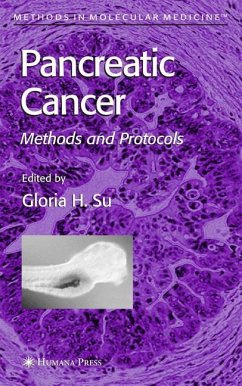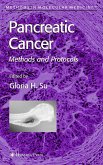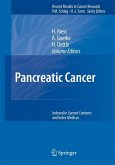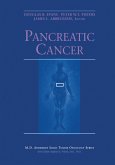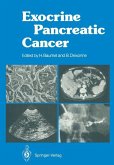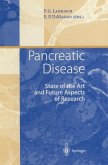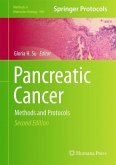This ambitious collection of essential yet novel methods for pancreatic cancer research or cancer research in general features an outstanding cast of authors who are esteemed leaders in the field. The authors provide a broad range of methods for molecular, biochemical, pathological, and statistical analysis of sporadic and familial pancreatic cancer, methods that can be applied not only to basic, but also to translational pancreatic research. Topics covered include in vitro cell cultures, in vivo mouse models, protein studies, mutation analysis, and treatment development.
Pancreatic ductal adenocarcinoma is the fourth leading cause of cancer death in the United States. Annually approximately 30,000 Americans are diagnosed with the disease and most will die from it within five years. P- creatic ductal adenocarcinoma is unique because of its late onset in age, high mortality, small tumor samples infiltrated with normal cells, and a lack of both early detection and effective therapies. Some of these characteristics have made studying this disease a challenge. Pancreatic cancer develops as a result of the accumulation of genetic alterations in cancer-causing genes, such as the oncogenes and the tumor-s- pressor genes. In the last decade, major progress has been made in identifying important oncogenes and tumor-suppressor genes for the disease. In Panc- atic Cancer: Methods and Protocols, we review the classical techniques that have contributed to the advances in pancreatic research and introduce new strategies that we hope will add to future breakthroughs in the field of cancer biology. Pancreatic Cancer: Methods and Protocols provides a broad range of protocols for molecular, cellular, pathological, and statistical analyses of s- radic and familial pancreatic cancer. It covers topics from in vitro cell c- tures to in vivo mouse models, DNA to protein manipulation, and mutation analyses to treatment development. We believe that our book will prove an invaluable source of proven protocols for those who are interested in either basic or translational research in pancreatic cancer.
Pancreatic ductal adenocarcinoma is the fourth leading cause of cancer death in the United States. Annually approximately 30,000 Americans are diagnosed with the disease and most will die from it within five years. P- creatic ductal adenocarcinoma is unique because of its late onset in age, high mortality, small tumor samples infiltrated with normal cells, and a lack of both early detection and effective therapies. Some of these characteristics have made studying this disease a challenge. Pancreatic cancer develops as a result of the accumulation of genetic alterations in cancer-causing genes, such as the oncogenes and the tumor-s- pressor genes. In the last decade, major progress has been made in identifying important oncogenes and tumor-suppressor genes for the disease. In Panc- atic Cancer: Methods and Protocols, we review the classical techniques that have contributed to the advances in pancreatic research and introduce new strategies that we hope will add to future breakthroughs in the field of cancer biology. Pancreatic Cancer: Methods and Protocols provides a broad range of protocols for molecular, cellular, pathological, and statistical analyses of s- radic and familial pancreatic cancer. It covers topics from in vitro cell c- tures to in vivo mouse models, DNA to protein manipulation, and mutation analyses to treatment development. We believe that our book will prove an invaluable source of proven protocols for those who are interested in either basic or translational research in pancreatic cancer.

